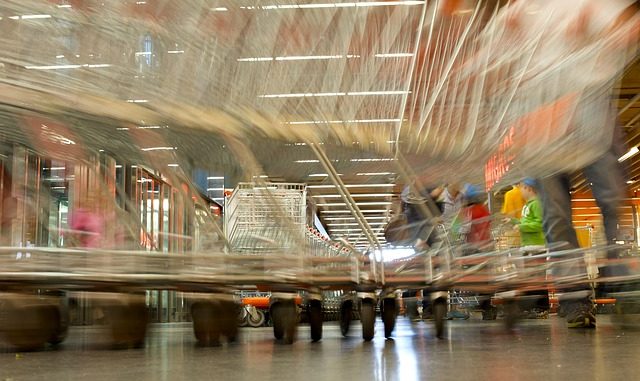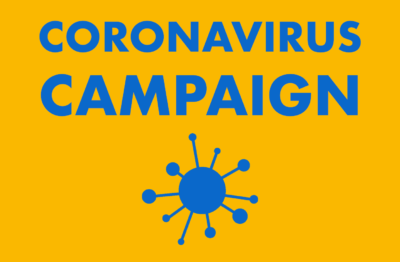
Faced with an NHS and social care system ill-prepared for the coronavirus pandemic, the call went out for 250,000 volunteer community support workers to help up to 1.5 million people who have been asked to shield themselves from infection because of underlying health conditions. The response has been staggering with more than 400,000 coming forward, and the recruitment target now raised to 750,000.
They are to be called on for delivering medicines from pharmacies, driving patients to appointments, bringing them home from hospital, and making regular phone calls to check on people isolating at home. Quite how vetting, safeguarding, training and safety issues will be addressed is unclear, but that this is tapping into a strong desire on the part of many people to be helpful to their fellow humans cannot be doubted. There have also been large numbers of retired NHS workers offering to return to work and help their struggling colleagues.
The Tories have been obsessed with getting unpaid labour to support the failing health and care systems wrecked by years of their austerity and underinvestment. In the process they have also given volunteering a bad name. After Cameron’s ‘big society’ initiative sank without trace, 2018 saw the launch of a charity called ‘Helpforce’. This planned to massively boost the numbers of NHS volunteers from 74k to “millions” and was the (as yet unrealised) ambition of merchant banker Sir Thomas Hughes-Hallet, better known to his friends as ‘Huge-Wallet’. The aim appeared to be for volunteers to do the work that hard pressed doctors and nurses through staff vacancies did not have the time for. With 40,000 empty nurse posts and bursaries that had been axed, NHS England managed to find £2.3m for Helpforce in the Long Term Plan .
Currently, the ExCel Nightingale Hospital nursing workforce is to be supplemented by recently laid-off air cabin crew with resuscitation skills, and first aiders from St John Ambulance. This unit has more than 80 wards each with 42 beds; something around 16,000 members of staff could be needed should it reach full capacity. An unresolved question is just where the trained NHS medical and nursing staff will come from to add to the small numbers of military personnel and staff promised from the private sector.
Chief nurses around the country have been asked to state their numbers of spare critical care staff - the replies are not difficult to imagine. One suggestion has been to send staff from distant parts of the country relatively behind London in the course of the pandemic and give them crucial experience before sending them back to their own hospitals. One of the objections to this is that the average length of stay for a critically ill patient is two weeks and the surge in patient numbers likely to be maintained much longer than this. Staff sent to London would probably be kept there, greatly reducing NHS capacity in the regions just as the caseload rocketed. However, if we had a properly coordinated national response to the crisis, the possibility of NHS workers moving temporarily to hot spots might be a valuable strategy.
Of course many people still have a sense of social solidarity and want to find ways in which to help others. Such altruism should be both lauded and facilitated. In fact it stands in stark contrast to the neoliberal ideology of government (it appears there is such a thing as society after all). In response to the pandemic, support in different forms for medical and care staff as well as vulnerable neighbours has been provided by members of the public all over the world and independently of the state. This is indeed ‘thrilling evidence of the transformative force of mutual aid’. In this context there is plenty of room for ‘volunteers’ and an energy that needs to be harnessed in the fight for universal health care in the post-Covid era.
However, volunteers recruited by government or their agencies should never be used as a substitute for trained staff but only in supporting roles. Supermarkets now in urgent need of extra hands have created new jobs and hired people to work. In the first instance community support staff could be recruited from those workers who have lost their jobs and livelihoods, and they could be given a contract, a wage and some training. While I would prefer an experienced ICU nurse to look after me if ill in hospital with Covid-19, since they will be at a premium and caring for six patients rather than the usual one, I’ll not object to them being assisted by redeployed cabin crew with some medical skills and experience of keeping cool in emergencies.
There may well also need to be willing volunteers in non-clinical support roles to keep the show on the road. Volunteers are not the solution to the crisis in staffing that existed pre-pandemic and is now exacerbated by illness, but together with additional paid redeployed staff recruited with some level of skills, given basic training and afforded the usual protections of employees, will be part of the solution until the crisis is over. Some of them will then join the fight for restoration of our NHS.
Dr John Puntis, Co-chair Keep Our NHS Public







Leave a Reply